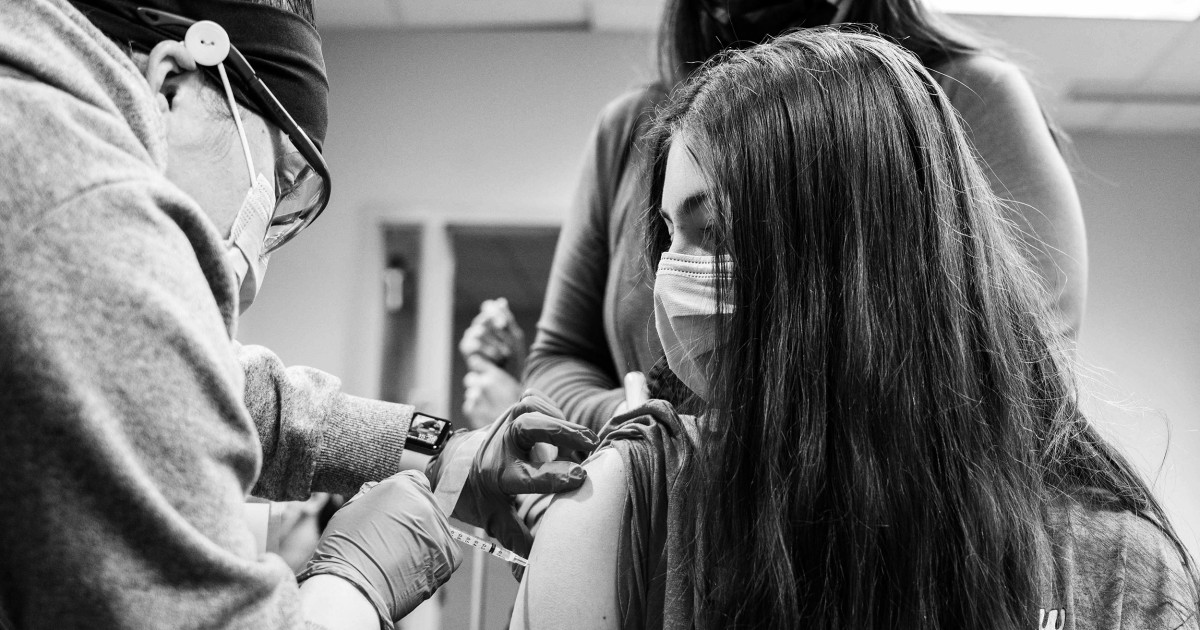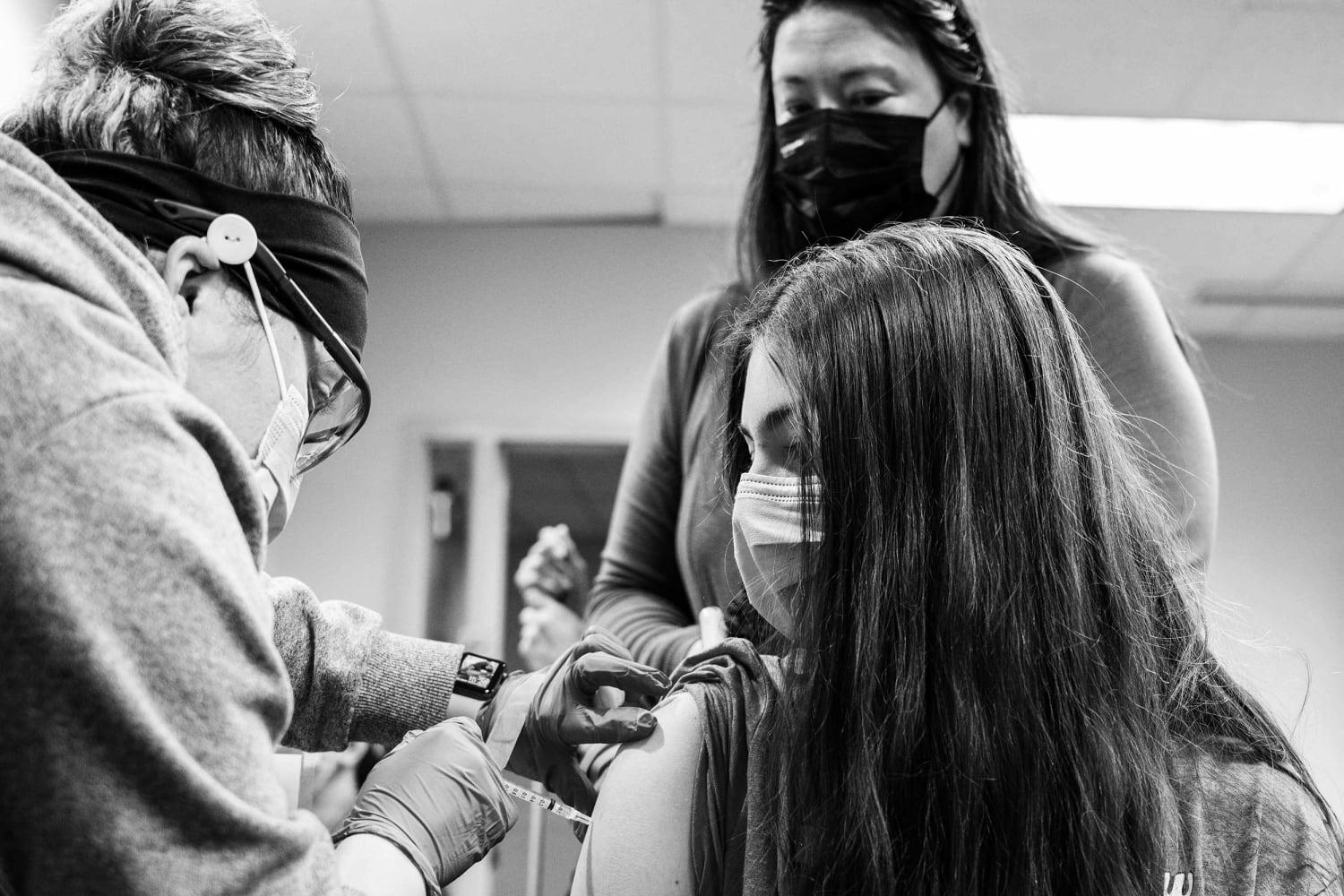
Vaccination rates for children 12 to 17 have surged in the Northeast and lagged in the South, one month since the first Covid-19 vaccines were cleared for ages 12 and up, according to an NBC News analysis.
In Vermont, nearly 59 percent of adolescents have received their first dose. In Massachusetts, the number is more than half. And in Connecticut, Maine, Maryland, New Hampshire and Rhode Island, more than 40 percent of 12- to 17-year-olds have received one shot.
Full coverage of the coronavirus outbreak
Meanwhile, young people living in the South are least likely to have got their first dose. Just over 7 percent of Mississippi 12- to 17-year-olds have received their first dose, and less than 10 percent of that age group in Louisiana.
Alabama was at the bottom of the list, with just under 6 percent of children ages 12 through 17 receiving their first dose.
Vaccine hesitancy seems to play a key role in low rates in the South, said Dr. David Kimberlin, a pediatric infectious diseases expert with the University of Alabama at Birmingham.
Kimberlin said he has personally witnessed rising rates of vaccine hesitancy among parents in his practice over the past several decades. They’re not necessarily anti-vaccine, but often parents who have been misguided by vaccine myths, and remain fearful of shots.
“I think personally that it fits into a broader challenge that we have in this country, of just not knowing who to trust,” he said. “It can be frustrating. You debunk one misinformation issue, and then two or three others pop up. It’s like whack-a-mole.”
In the Midwest, teenage Covid-19 vaccination rates for the first dose hover around 25 percent. Just under a third of teens in Michigan and Wisconsin have received one dose, while less than a quarter of adolescents in Nebraska and Ohio have had the shots.
Rates in Missouri are just under 19 percent. Dr. Natasha Burgert, a pediatrician in Kansas City, predicts more parents will sign their kids up this fall.
“Kids will be going back to school, and parents are back at work,” she said. “If a child is exposed, there is going to be a very practical problem of parents having to come home from work after an exposure, which is very different than when we were home.”
NBC News calculated teenage vaccination rates by subtracting first dose vaccinations for adults 18 and up from those 12 and up. Pfizer-BioNTech’s vaccine was authorized for kids as young as 12 in May. The analysis also includes previous data for 16- and 17-year-olds, who were able to receive the Pfizer vaccination as early as December. Most older teens, however, did not get the shots until early this year, after health care workers and elderly adults had the chance to be vaccinated.
There are caveats when comparing states. Smaller states like Vermont, which has the highest vaccination rate among teens, only has around 40,000 teenagers. Therefore, the state has fewer overall teen vaccinations than California, which has vaccinated a third of its 3 million teenagers.
Download the NBC News app for full coverage of the coronavirus outbreak
According to the Centers for Disease Control and Prevention, just over 7.1 million 12- to 17-year-olds have had at least one Covid-19 shot.
Last week, CDC Director Dr. Rochelle Walensky urged parents to vaccinate their teenagers, citing a recent rise in the number of young people hospitalized with the illness.
“I am deeply concerned by the number of hospitalized adolescents and saddened to see the number of adolescents who required treatment in intensive care units or mechanical ventilation,” she said in a statement.
In the first three months of the year, CDC researchers found that nearly one-third of adolescents hospitalized with Covid-19 required admission into an ICU and 5 percent needed invasive mechanical ventilation.
“Much of this suffering can be prevented,” Walensky said.
Source: | This article originally belongs to Nbcnews.com









